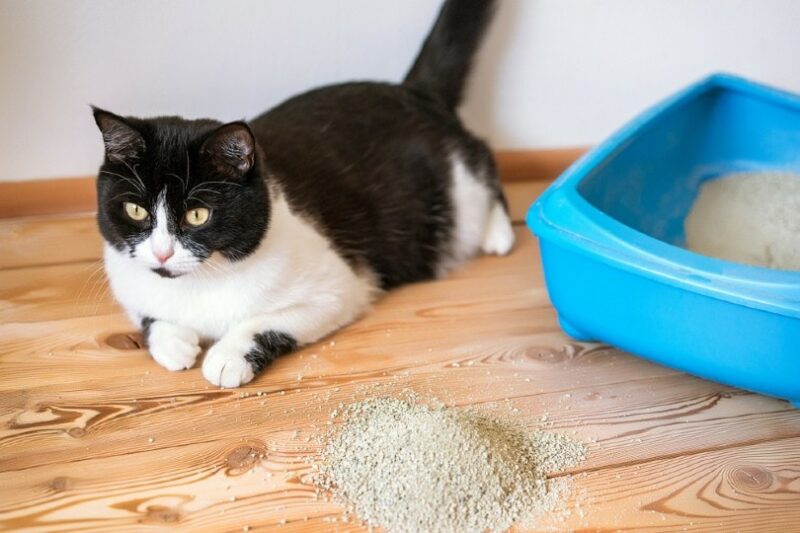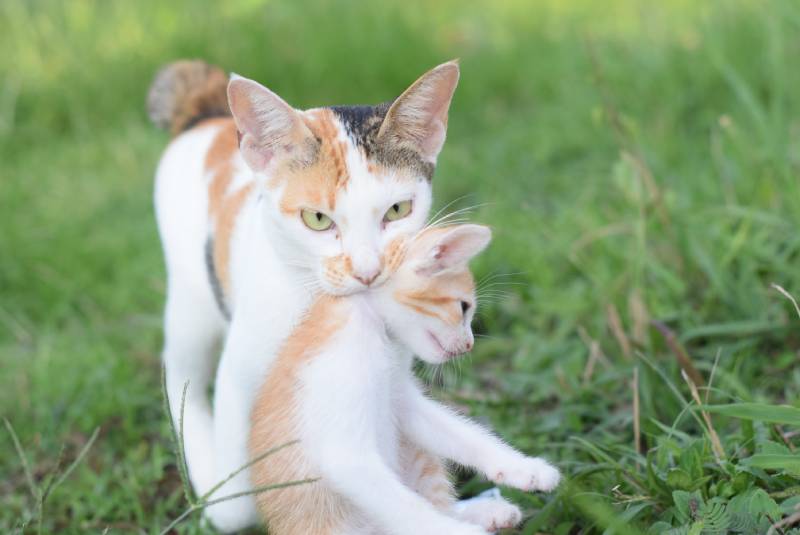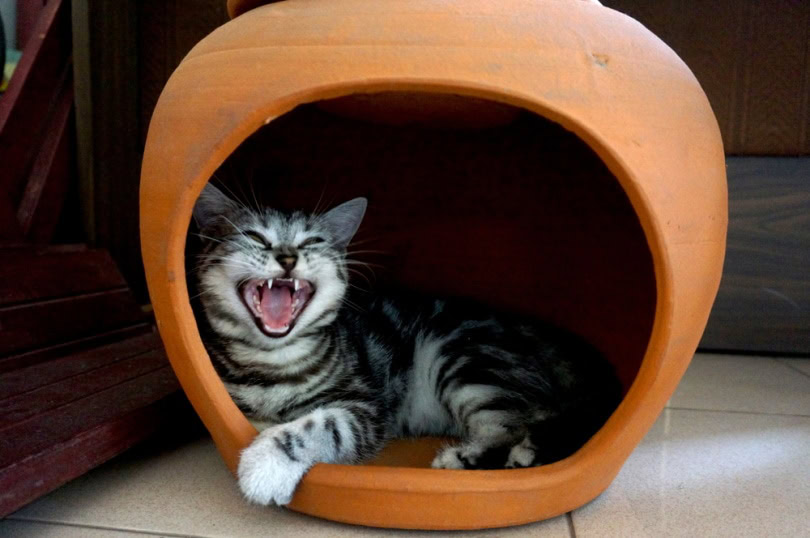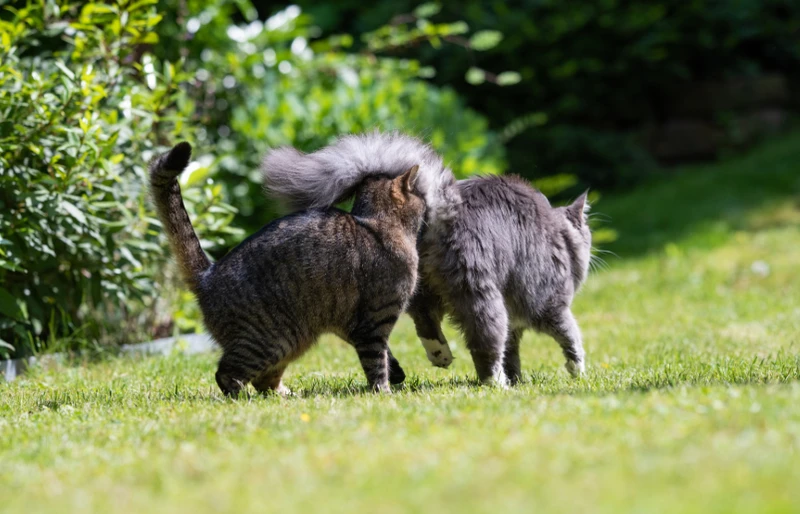Cats can develop litter box elimination problems caused by stress, disruptions, or medical conditions. If your cat is not using their litter box like they usually do, it can become a concern. Some issues can cause a long-term litter box avoidance problem, so it is crucial to understand the root cause of these behaviors so that they can be corrected. Instead of using their litter box, your cat may start to poop or urinate on the floor, furniture, bedding, and rugs.
This can cause a new habit to form and become a daunting task for you to clean up. This article will give you a rundown of the most common reasons for a cat to be defecating outside of the litter box.

The 7 Reasons Why Your Cat Poop Outside the Litter Box
1. Dirty Litter Box Conditions
Cats are hygienic animals and typically refuse to use a dirty litter box that has not been cleaned. Your cat has a sensitive nose and can easily detect undesirable smells in their litter box.
The litter box can also foul quickly if multiple cats use the same one and it is not cleaned regularly. If you do not stick to a cleaning routine and ensure that your cat’s litter box always smells fresh, your cat may choose to use the bathroom elsewhere.
Even if you keep a clean and tidy litterbox, you probably still find yourself with cat odors and stains around the house – but with the Hepper Advanced Bio-Enzyme Pet Stain & Odor Eliminator Spray, you can permanently remove even the very worst pet stains and smells! Click here to learn more and get yourself a bottle.
- ADVANCED ENZYMATIC CLEANER - Penetrates the most stubborn smells and stains at the deepest molecular...
- FOR ANY MESS, ON ANY SURFACE - This pet odor eliminator cleans your carpets, floors, furniture,...
- FRESH, NATURAL ODOR - Our unique formulation doesn't rely on dangerous or unpleasant chemical...
At PangoVet, we’ve admired Hepper for many years, and decided to take a controlling ownership interest so that we could benefit from the outstanding products of this cool cat company!
2. Negative Litter Box Association
Cats who have had a negative experience using litter boxes may feel too stressed to use them again. This can happen for several reasons, such as your cat experiencing a disturbance while using the litter box or becoming injured.
They will associate this event with using the litter box and then avoid it to prevent the problem from happening again. Your cat is vulnerable when using the litter box, so any discomfort or negative experiences can cause them to become fearful of using the litter box again.
- Related Read: Best Cat Litter Attractants – Review & Top Picks
3. Medical Problems
Many medical issues can cause your cat to feel like they are in too much pain and discomfort to use the litter box, especially if it is difficult for them to access. Conditions such as a urinary tract infection (UTI), feline interstitial cystitis, kidney stones, or arthritis can cause your cat pain when going to the bathroom.
If the litter box is kept in an area that is difficult to reach and requires your cat to exert their body, it may leave them no choice but to urinate or poop where it is most comfortable. These conditions are painful, and your cat will need prompt veterinary treatment.
4. Scent Marking
When scent marking, cats typically spray a vertical object, such as a wall or piece of furniture. This phenomenon is common when cats are stressed out and marking their territory or when unspayed and unneutered cats leave scent marks to attract mates.
Several factors can contribute to your cat urinating or pooping outside of the litter box, so it is important to determine the reason your cat is displaying this behavior so it can be resolved.
5. Stress
Environmental or psychological stressors in the environment can cause your cat to avoid using the litter box and poop or urinate in abnormal areas of the household. Stressors can include changes in the family’s routine, moving, traveling, or adding new pets.
Cats are highly sensitive animals, so disruptions to their lives, even if minor, can cause them to feel stressed and, in return, act abnormally. You may find your cat spraying or leaving urine marks on furniture or not using the litter box appropriately.
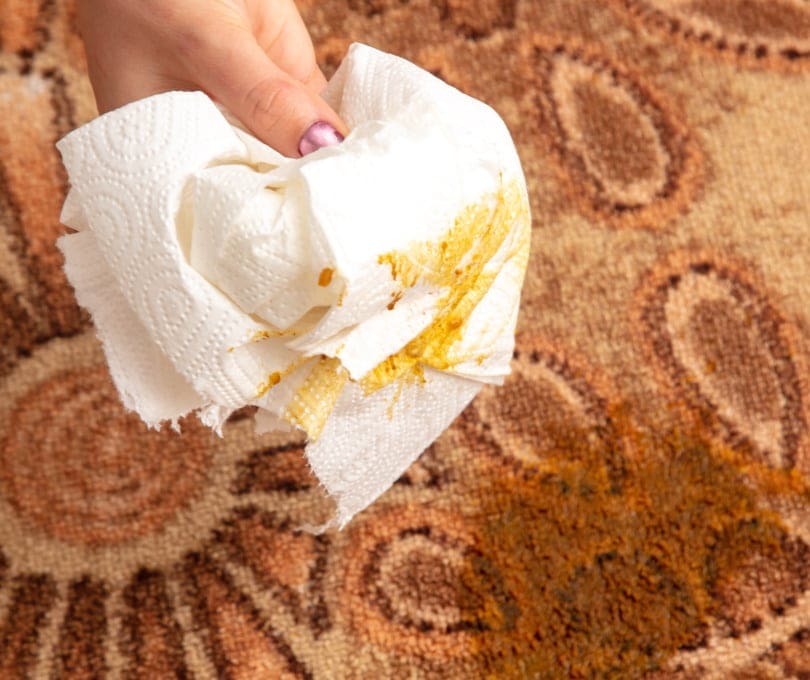
6. Multi-Cat Household Conflict
If you have several cats and not enough litter boxes to accommodate each one, some cats might control the litter box and not let other cats have access to it. This causes stress and confusion in the cats, as they do not know where else to use the bathroom. Other cats may also be marking their territory in the litter box, warding off other cats.
In this situation, it would be best to have multiple litter boxes around the house in different areas so each cat does not have to fight or wait for another one to use the litter box. The typical rule of thumb is one litter box per cat plus one extra.
7. Location Preferences
Some cats can become picky about the type of litter box they are using or the area and surface the litter box is placed. Your cat may avoid using the litter box in a location that they do not like, such as a busy area where there are a lot of disruptions.
If the surrounding area is unsanitary or in disarray, your cat may urinate or poop outside of the litter box because they do not feel comfortable using the litter box in the specific location it is placed. It is best to place the litter box in a quiet area, such as a bathroom or office, that people do not use much so that your cat can feel safer when doing their business.
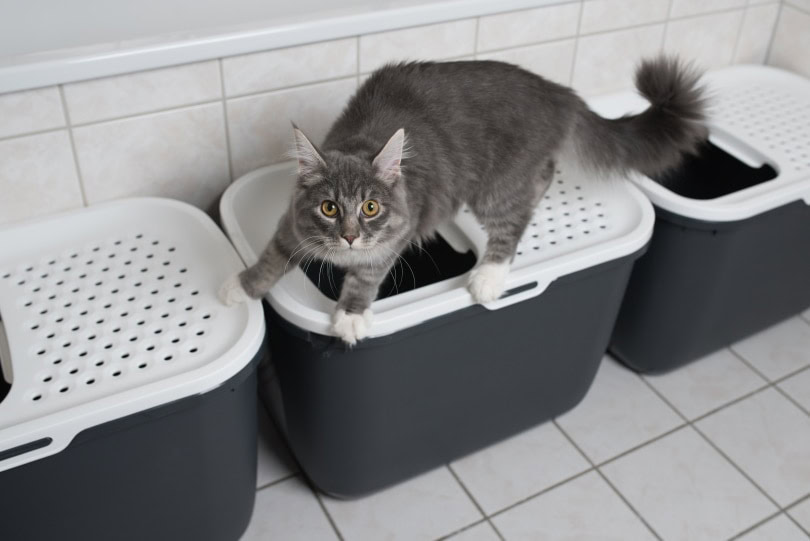

Conclusion
These litter box-related issues can usually be resolved after you have identified the most likely reason for your cat to be pooping outside of the litter box. Some reasons may require the help of a veterinary professional, gentle guidance, or positive reinforcement.
It is important not to punish your cat when they defecate outside of the litter box, as it will only cause them to feel more distressed and guilty about their behavior. Instead, look for methods to combat the issue in the least stressful manner.
You may also be interested in:
- Cat Not Covering Its Poop? Reasons Why (& How to Help)
- Why Does My Cat Poop in the Tub? (Potential Causes)
Featured Image Credit: Tanya Plotnikova, Shutterstock
